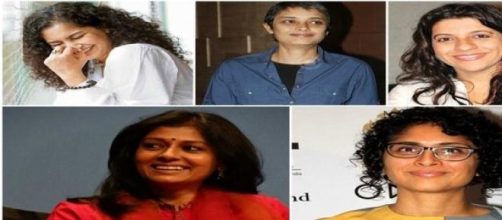Zoya Akhtar has aced the craft of filmmaking with her earlier work, including Luck By Chance and Zindagi Na Milegi Dobara. Her latest movie, 'Dil Dhadakne Do', will be released on June 5, 2015.
'This is a man's world, but it wouldn't be nothing, nothing, not one little thing, without a woman or a girl,' sang James Brown. The female directors are soon going to change the landscape of filmmaking in Bollywood. Below are five master strokes made by Bollywood's contemporary female directors who are set to help catapult women to new echelons in the Hindi filmmaking industry:
1.
Luck By Chance (2009), Zoya Akhtar
It's difficult to believe that Luck By Chance was the directorial debut of Zoya Akhtar. She explored the Bollywood conventions in her debut venture but not in a cynical or contemptuous way. Akhtar took an acknowledging stance and eloquently portrayed the dynamics of life in the industry.
Bollywood is now waiting for her next directorial venture, 'Dil Dhadakne Do', a story about a dysfunctional Punjabi family.
2. Dhobi Ghat (2010), Kiran Rao
Dhobi Ghat is an ode to the people of Mumbai by Kiran Rao. Her directorial debut impressed the critics mostly due to the stunning portrayal of Mumbai, with artistic impressions.
Dhobi Ghat was also an unfeigned endeavour amidst the clamour produced by the commercialisation of cinema.
Dhobi Ghat never intended to become an example of art-house entertainment but it surely served as a respite for the eclectic cinema lovers.
3. Firaaq (2008), Nandita Das
Critically acclaimed actress Nandita Das poignantly chronicled the aftermath of the 2002 riots, in Gujarat with her film, Firaaq. A moving story about people surrounded by fear and trauma, perfectly captured by Das' striking filmaking.
The relentless probing into human emotions is one of the many examples on how female directors have brought originality to life on the screen. For a first time director, it was truly an achievement.
Sadly, Das continues to work as an actress and has not directed a movie since Firaaq.
Cinema lovers are certainly waiting to see Das go behind the camera more often.
4. Talaash (2012), Reema Kagti
Reema Kagti is another female director successfully changing the narrative of filmmaking. Talaash, her second directorial venture, was a tale of broken souls surrounded by the melancholy of losing someone and letting it go. With Talaash, she proved her mettle as a director with an ability to use mystery to contour an emotional tale.
Even today, Talaash serves as a prototype for thoughtful filmmakers, more keen on portraying novel ideas than just entertainment.
5. English Vinglish (2012), Gauri Shinde
Who could believe that English Vinglish is Gauri Shinde's debut movie as a director?
Shinde's insightful direction coherently depicts the life of a woman who has to play the role of a mother, a sister and a wife simultaneously.
English Vinglish has a basic plot - woman doesn't know English, feels bad about it, learns English, feels proud - and a completely predictable climax. What makes it stand out then? Mostly Shinde's adroitness to handle the intricate nature of the plot without being melodramatic.

